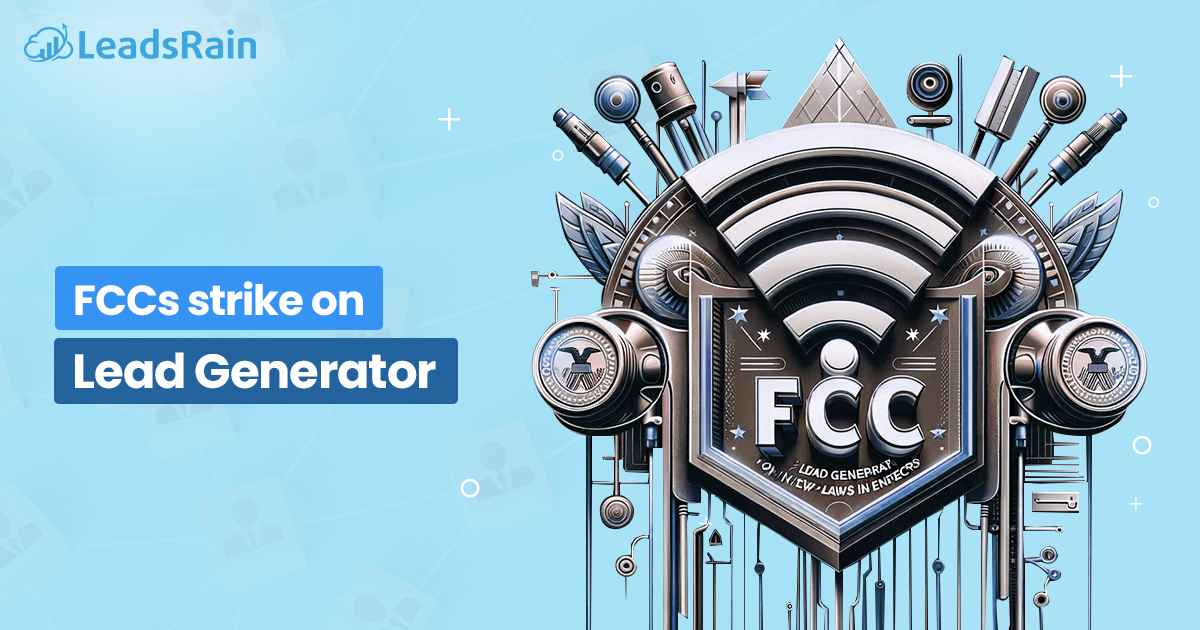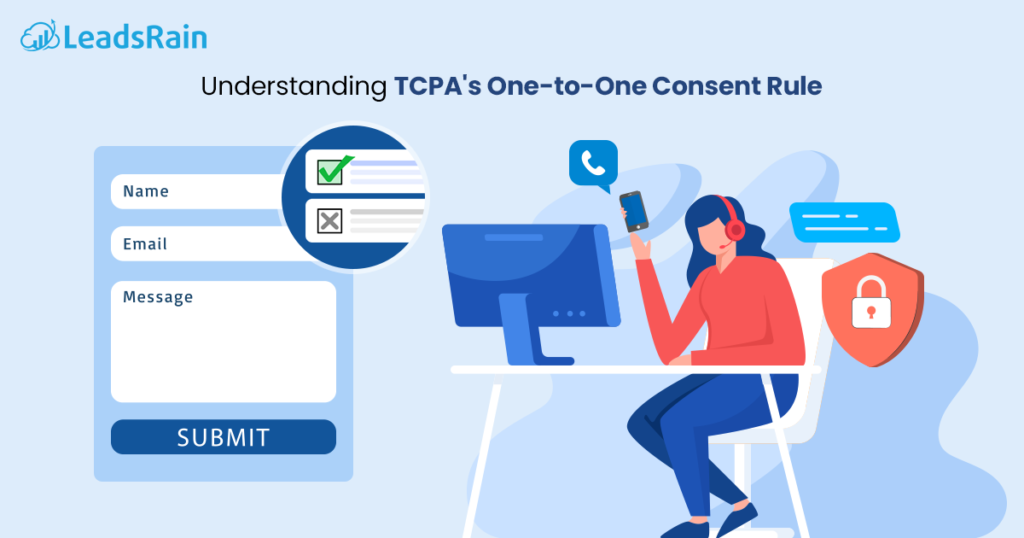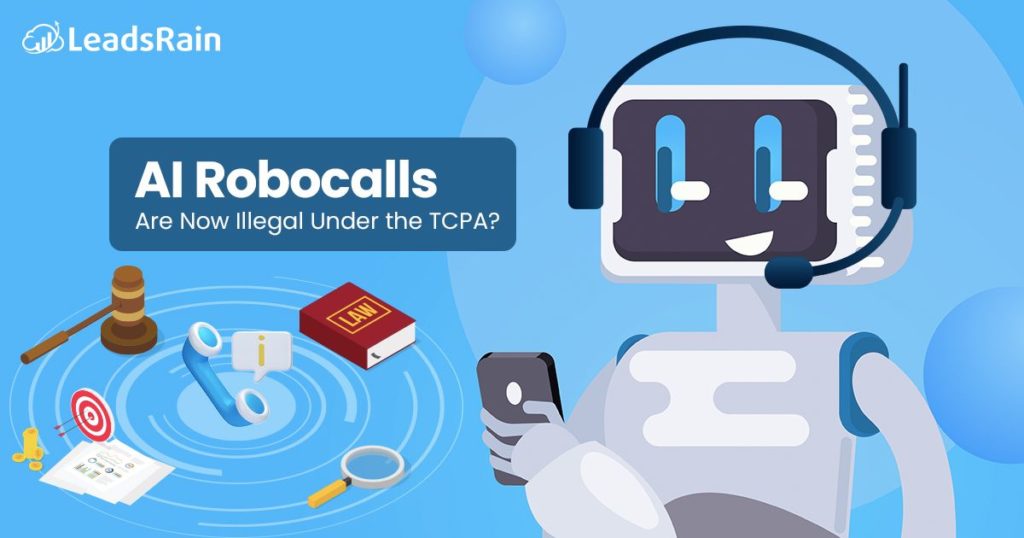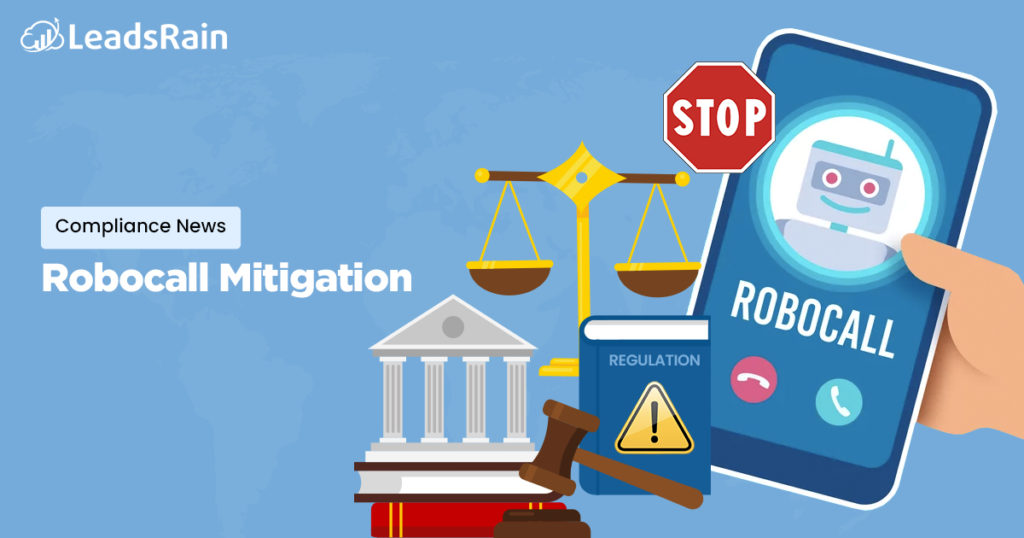One of the intriguing blogs discusses” Why the Federal Communications Commission (FCC) is closely monitoring lead generators. Lead generation has greatly arisen over a few years due to its misuse of customer privacy and data. The new proposed rules by the FCC majorly focused on pre-recorded calls, auto dialing, and consent. The new rule would put stringent new restrictions on so-called lead generators.
Revealing the darkness of Lead Generators
Lead generation is considered a great source of incoming a lot of spam and robocalls. They are the companies or individuals who collect and sell customers’ contact details to numerous businesses. Lead generation is a valuable tool for business but there are a few concerns too.
Lead generation sharing material has grown too much to become large businesses in this competitive edge. The FCC cites one great example of this: a company was sharing customer calling information with around 5,000 marketing partners ‘.
Negative Impacts of Lead Generation on Consumers
Lead generation is an effective strategy for businesses in several ways, but some negative consumer impacts must be considered. If marketing messages and follow-ups are not managed accurately, overwhelming communication can result in a negative customer experience.
Sometimes, lead generation results in a high volume of leads that are not qualified. This unqualified lead generation can lead to customer frustration as customers are not genuinely interested in receiving irrelevant offers.
Moreover, these situations can still be overcome through thoughtful and effective lead-generation strategies that can prioritize customer needs & preferences and are more focused on delivering personalized approaches.
Concerns surrounding lead generators
Businesses must be aware of and address the concerns related to lead generators and address them adequately with lead generation efforts. It’s important to thoroughly examine and select reputed lead generators that ensure ethical standards.
- Some common concerns surrounding lead generators are;
- Quality of leads generated by third-party lead generators.
- Concern regarding Return on investment (ROI).
- False promises, exaggerated claims, or misleading information about products/services.
- Data protection and anti-spam laws
- Unsolicited communications i.e. cold calls, unwanted emails/spam messages.
- Phishing attempts or selling leads to unauthorized third parties.
- Concerns about privacy and security of customer data
Thus, it’s crucial for businesses to regularly monitor and evaluate the quality of leads generated and comply with relevant regulations by adhering to ethical standards.
The FCC’s Role in Protecting Consumers
The important function of the FCC is consumer protection. FCC safeguards consumers by ensuring them affordable and reliable communication services. The main aim of the FCC is to prevent unfair pricing practices, ensuring all consumers have access to essential communication services.
FCC works on enforcing regulations that require service providers to safeguard their consumers’ privacy and secure their data. They focus more on concerns related to accessibility and inclusivity in the telecommunication landscape.
As we are aware, lead generators play an important role in businesses. But there are also concerns like misleading practices, scams, or unsolicited communication.
The FCC can safeguard its consumers by intensifying its efforts while maintaining a fair and transparent marketplace. Let’s acknowledge its importance with some reasons, which are;
- Consumer protection can be enhanced by implementing stricter regulations and enforcement against lead generators that are engaged in unethical or fraudulent practices.
- FCC builds stronger relationships and maintains trust between businesses, lead generators, and consumers. Thereby, the industry’s reputation will be boosted.
The essence of new proposed rules to Tackle Lead Generation
A rule that the Federal Communications Commission (FCC) has proposed is set to transform the lead-generating sector. The Telephone Consumer Protection Act (TCPA) “lead generator loophole” is the centerpiece of this rule. It requires stricter compliance with consumer communication norms.
The FCC voted 4-1 on December 13, 2023, to implement the Proposed Rules, which would have limited consent to one-to-one, the updated laws regulate do-not-call guidelines for texting, permit restricting “red flagged” robo-texting numbers, and promote an opt-in method of transmitting email-to-text messages.
New Proposed Rules:
- One-to-one consent. Lead purchasers must get explicit and individual consent from each consumer before interacting with them.
- Logically and topically related. FCC will only allow leads generating referrals with logically and topically related partners to the website. , consent will only apply to services that are aligned with the interest that the consumer has expressed.
- Breaking down on lead sharing. It will be illegal to sell customer information to numerous sellers.
The new regulation aims to address this and reduce the number of unwanted robocalls and texts by ensuring that consent is particular and relevant to the service in issue. After enactment, these amendments are scheduled to go into effect in six months.
Businesses will need to obtain a customer’s prior express written consent once the new regulations go into effect, but here’s the catch: only for calls and texts made using an automated telephone dialing system (ATDS), pre-recorded message, or artificial voice, and only for “one seller at a time.”
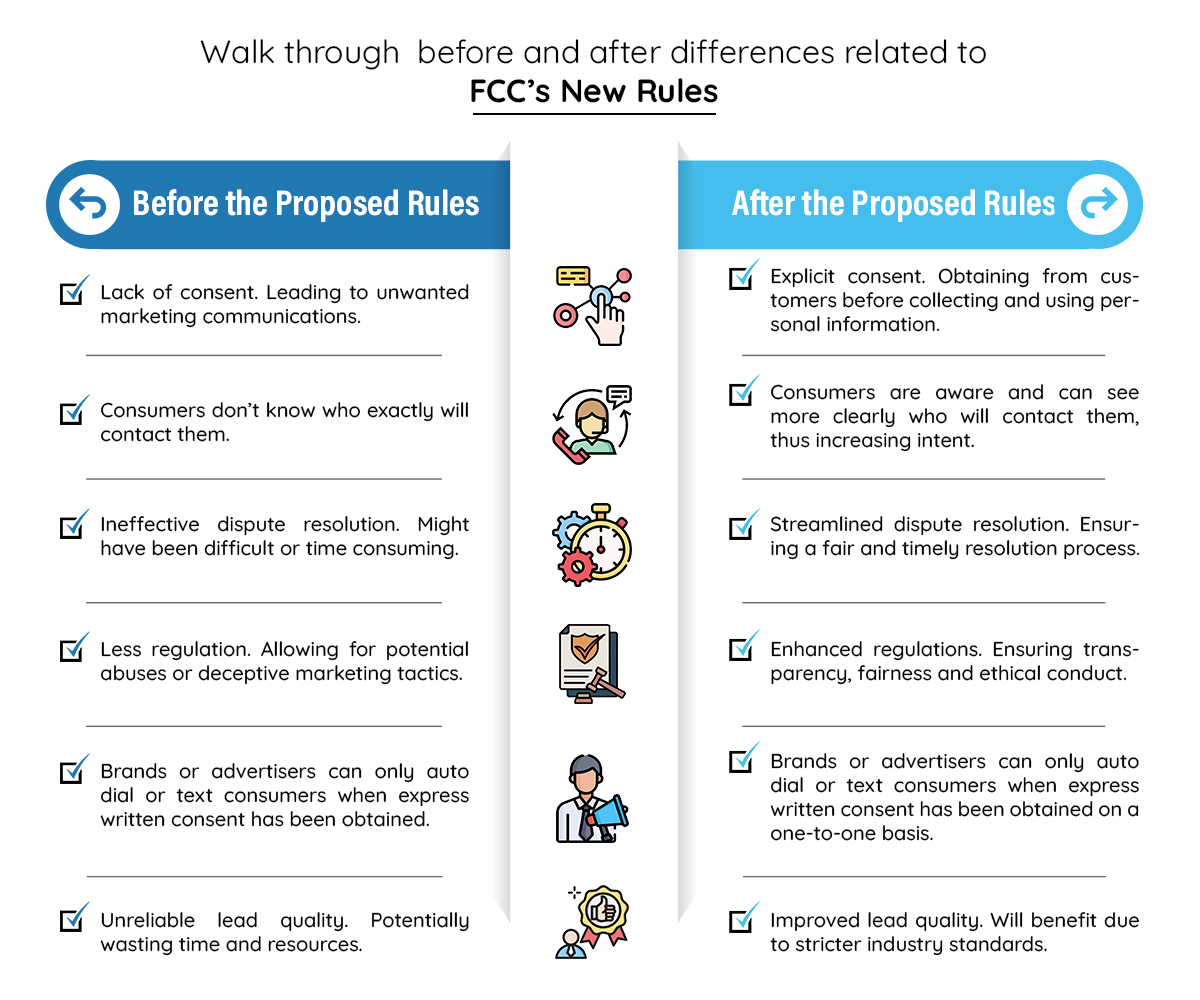
Potential Impact on Operational Practices
Lead generators must change their business practices drastically to comply with this guideline. It is anticipated that the necessity of 1:1 consent would stop the common practice of customers receiving many calls and messages from several unconnected business entities.
Furthermore, the regulation mandates that consent must be “logically and topically related” to the services the customer initially requested.
An organization that buys leads will not be allowed to contact anyone without that person’s express, signed agreement to be reached by that particular firm.
Is the FCC approach practical?
Although the law strives to stop the illegal use of customer consent in lead generation, there is still disagreement about how effective it is overall—especially in terms of lowering the number of robocalls coming from unknown sources.
Additionally, the law may make it challenging for small firms to connect with potential customers, which could decrease their competitive edge and hike service costs.
How can our Cloud-based Outbound Sales & Marketing Platform assist?
Our outbound marketing platform offers a solution to automate all necessary internal procedures, which can operationally manage all compliance requirements. We strive towards being easily available for our valuable users. Our solutions are featured with inbuilt in our services and products, which makes compliance easier.
We provide options to monitor your calls, record them, or hijack/ control them which are conducted by agents actively looking for breaks in compliance and track deviations. We have an inbuilt DNC scrubber that removes leads not enlisted in the DNC Registry.
Our ringless voicemail and text messaging services are intelligently designed to send messages automatically in the time window defined by users. This enhances your communication efficiently in the specified window for telemarketing in the region of your recipient.
Well, due to the constantly changing landscape in DNC/TCPA rules and guidelines, organizations must consider and opt for advanced technology to ensure their communication with new leads is maximized during outbound sales efforts and campaigns.
Conclusion
Have great insights on FCC protection towards consumers from deceptive and unsolicited communications. Throughout the blog, you will get to know how the FCC will enforce regulations to promote fair business practices and protect consumer privacy while maintaining the integrity of the telecommunications industry. Stay informed and navigate lead generation practices responsibly while prioritizing consumer consent. Still confused? Contact our sales & support team to manage your FCC complaint lead generation campaign with LeadsRain.
